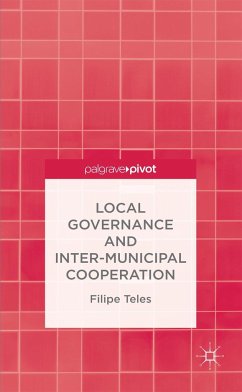
Political Elites and Decentralization Reforms in the Post-Socialist Balkans
Regional Patronage Networks in Serbia and Croatia

PAYBACK Punkte
19 °P sammeln!
Across the globe, more powers are being devolved to local and regional levels of government. This book provides an innovative analysis of such decentralisation in transition states in the Balkans. Using new and rich data, it shows how political elites use decentralisation strategically to ensure their access to state resources.














